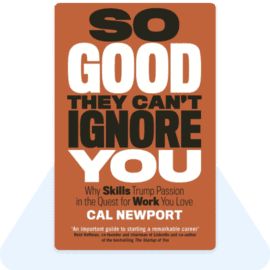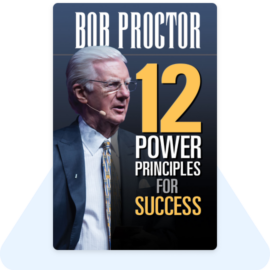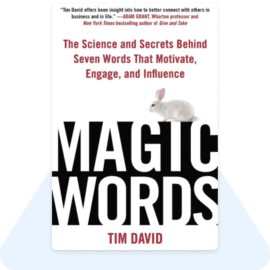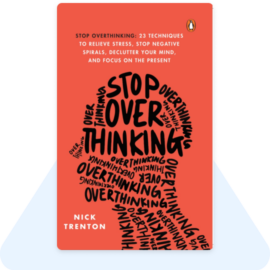Do these questions haunt you – Do you love your work? Can you claim that you are successful in your career? Do you believe that the secret key to happiness is following your passion?
If yes, then you can get some insights in the summary of the book “So Good They Can’t Ignore You” by Cal Newport below.
The most memorable thing about books is that they challenge our useless beliefs and tell us about better ideas.
Does this happen to you too? Sometimes this voice comes from the heart; follow your passion, and identify your true calling.
Only by doing your favourite work can you satisfy and succeed in your career. The authors call this the passion hypothesis. This means first finding your life’s passion, then starting a job or work that matches the power.
The author debunks this idea in this book and gives a new perspective to help you build a happy career. By the end of this summary, you will understand why some people love their work and some people do not like their work.
Perhaps somewhere, someone must have told you that the secret key to happiness is to follow your passion.
But do you think this advice is good? If so, why did Steve Jobs build the most successful company in the world when he wanted to be a Zen master?
So this book will tell you about the realistic approach to getting out of the passion trap and staying successful and satisfied.
You will learn how to develop rare and valuable skills needed in the market. You’ll also learn how to use these skills for work control and autonomy, which leads to satisfaction in your work.
Finally, you will discover how to find your mission and that inspiring goal from which to grow professionally.
To understand the book better, we will read five chapters individually.
So let’s start.
Chapter 1: Don’t follow your passion
You should always know what work you love. The only secret to doing great work is to love what you do.
If you have yet to find it, keep looking, don’t settle before that – Steve Jobs. After listening to this quote, you may also think the Apple company results from Steve Jobs’s passion.
In reality, Steve Jobs was fond of learning about Zen Buddhism; he was passionate about it.
While working with his friend, he found computers a money-making opportunity, and thus the Apple company was started.
And Steve Jobs followed his passion, i.e., giving something different to people through his work. So the author says, don’t do what Steve Jobs said, do what he did.
Many people do not know what work they love. The job getting you excited today may not seem like it tomorrow.
So first, think about what the world needs and offer it to them, don’t expect the world to give you the work of your passion. Then, let us know about it in detail.
In research, many students were asked about their passions. Many students were passionate about singing, reading, dancing, and hockey.
Unfortunately, these are all hobby-style passions, which could not help them choose a career. Can everyone passionate about singing become an excellent and successful singer?
No. It is rare to make a career out of this passion in such a situation. You must follow a relevant passion.
The Passion Hypothesis Life coach and author advise people to do what they love. For this, it is essential that you first find your passion, and then meaningful work will automatically appear in front of you.
But is passion the right path? First, passion is linked to expertise, which only a few develop. Let us understand the earlier study in detail.
This study was done in 2002 with 100 students. Of these, 84 students chose activities like dancing, reading, and singing as their passion, while only 16 chose computer programming, directly related to education and career.
Finding the work you were born to do can be an idea of self-doubt and just hoping. Let us understand this with the example of Thomas.
Thomas used to work in an IT company. He was unsatisfied with his job and wanted to work as a Buddhist Zen master, so he left and started working in a monastery.
Everything was going well, but sometimes they had to starve all day to realize that the food didn’t satisfy them.
Although Thomas was meditating very well, nothing had changed, but he still felt restless. He learned from this incident that pursuing a passion does not guarantee happiness. Happiness and sometimes dissatisfaction comes in every work.
Yale University professor Amy Wrzesniewski researched how people think about their work. She learned that many people view their work as a job (as a source to pay the bills), a career (as a way to grow more), or a calling (by doing what they love most in life). to be happy) do.
People who do their work, like calling, do attractive jobs like doctors and teaching. However, some people also prefer to work in government or private companies’ administrative posts.
Researchers have found that people in this category enjoy their work more than viewing work as a job or a path to career growth.
The main reason behind their enjoyment is that they do the same work often, so their experience improves.
And researchers have guessed in other research that the more experience a person works on the same post, the more satisfied he feels.
Over time, such people learn the skills necessary to perform well in their work, which leads to good results and good relations with coworkers. And after reaching this level, this work becomes his passion.
Self-Determination Theory – these three things are necessary to feel good about your work:
- Autonomy: You control your day, and taking action is most important.
- Competence: The feeling that you are good at your job.
- Relatedness: Feel that you are working closely with others and providing good customer service to your team.
According to this theory, you do not need passion. When you work hard in your work, mastery will automatically start achieving. We start feeling passionate and motivated when we perform well in our work.
Chapter 2: Be so good that they can’t ignore you
There are usually two types of mindset.
- Craftsman Mindset
- Passion mindset
A Craftsman mindset focuses on how much value you are giving to your work. At the same time, a passionate attitude and thinks about what the job offers and whether I feel comfortable in it.
The craftsman mindset lives in clarity about what to do next, while the passion mindset creates confusion.
To love what you do and have a different perspective, reject the passion mindset and adopt the Craftsman mindset.
Research has proven that maintaining or staying in control is the key to a happy and meaningful life.
This thing also fits well in the workplace, where there are pitfalls related to many rules that need to be avoided.
First, we often think that control can only be achieved with professional capital, i.e., demanding market skill, whereas it is not.
Let us understand these examples. Think of Jane. A high-achieving student who wanted complete control over where and how she worked.
To achieve this, she started a travel blog by getting information about fulfilling his world trip dream, sharing it with people, earning money from the blog, and adding it to the trip.
But Jenny’s blog failed because she needed professional capital or necessary skills regarding blogging. Even he needed to plan how to attract readers to his blog and how to monetize it.
Another example is Ryan. Who wanted to start his own farming product business to get control over his work.
First, however, he needed to gain academic knowledge about farming. So before starting the company, he acquired the necessary professional capital in agriculture, selling crops, and earning a profit, and then started his business. This professional capital made his Red Fire farm business profitable.
A Craftsman mindset is beneficial in every profession because it motivates you to learn and master professional skills so that you develop these skills by practising purposeful activities.
This is good because people with rare and unique skills are in high demand, and such employees can work creatively with control.
To work like this in a supply and demand market, you must develop rare, unique, and practical skills to become valuable and rare.
This skill itself is called career capital. These are the skills that make us different from others.
Let us take the example of Laura to understand the importance of professional capital. Laura was previously an accountant; she took the risk of opening a yoga centre. Her centre ran well for a few months, but after that, it started suffering.
Although Laura had a good experience in the accounting field but did not have capital expertise in Yoga, she could not handle the challenges coming into that centre and finally had to close the yoga centre due to loss.
So how can you develop career capital skills to avoid making the same mistake as Laura? For this, you move forward with a craftsman mindset. It motivates you to do better in your work.
This can be well understood from the story of Alex. Alex was a TV writer. As he was doing his job every day, he felt that writing for drama was his passion.
In such a situation, he thought with a craftsman mindset. Instead of leaving the job straightaway and starting drama writing, he decided to develop his career capital to become a drama writer in his spare time with his job. He arranged some demo scripts of the drama.
Taking the idea from him, he started writing his hand. He would write the script and ask his colleagues to give their feedback. And kept doing so for the next few months.
In this way, after months of continuous practice, he started performing well in drama writing. That is, he made his career capital in it.
Then showed his script in some theatres, and after getting work, he started doing his passion work full time.
Creativity, control, and impact are necessary to be great at what you do. Always try to do something new and better in your work for originality.
Keep doing recent research to improve the experience of your customers. For control, keep the quality and quantity of your work under your control.
The impact is one of the critical factors. The more people’s lives you impact with your work, your passion for work keeps increasing.
Therefore, your work positively impacts the lives of as many people as possible. These are the qualities that can make you great at anything. To develop these, a spirit should offer maximum value through your work.
With this, you can earn good profit by following your passion. To develop these qualities, a craftsman mindset needs to be adopted.
When developing a Craftsman mindset is essential, let us understand how to create it. Deliberate practice is the key to developing career capital skills.
For this, author Malcolm Gladwell explains the 10,000-hour rule in Outliers Book. According to this, you need 10,000 hours of practice to master any skill.
Deliberate practice gives deep knowledge of that work, and one becomes an advanced-level person. So these are the five ways to develop deliberate practice:
Step 1: Decide what capital market you are in
There are two types of capital markets.
1) Winner Take: The winner-take-all is script writing, blogging, etc., where skills such as writing ability are needed.
Here the demand is less, and the supply is more, so many people compete with each other for the same post.
2) Auction: Man supplies according to the market’s demand in an Auction. For example, to understand people’s needs, Google acquired a YouTube company and created a free video upload platform. Due to this, people started getting value, and Google began to earn profit.
Step 2: Identify Your capital type
After identifying your market, ensure the skills needed to fulfil the demand.
Step 3: Define Good
Be clear about your good goal. The writer’s worthy goal is to work seriously to improve his writing quality.
Step 4: Stretch and grow
After deciding on your chosen skill, start practising it deliberately. Doing this will leave your comfort zone and learn new aspects of that work. After practising for some time, it may seem that I am doing well; in this case, keep taking feedback so that you keep getting the basic information about your growth.
Step 5: Be Patient
Remember that acquiring skills is not a one-day job; it requires consistent hard work for many months. So keep patient till you become excellent in your work.
People of passion mindset keep on finding the answer to this type of question, what do I want? It means they always think in the back of their mind whether what they are doing is right.
They believe their work should make them happy and satisfied and often focus on the things they don’t like about their work. The result of this is that their satisfaction level starts decreasing.
Whereas craftsman mindset people think, how can I add value to my work? How can I get my work done quickly?
How can I increase its quality? How can I do this work for more people in less time? People of this mindset believe it does not matter in which industry they work; success is always hidden in quality.
As comedian Steve Martin once said, be so good that no one can ignore you. So instead of thinking about whether this work is related to my passion, focus on improving the quality of the work you are doing now.
When you adopt a craftsman mindset, you will not hesitate to make necessary improvements in the quality of your work.
And do deliberate practice to improve the quality. For example, a chess player spends at least 10,000 hours practising and studying to become a master.
Once mastered, one keeps practising and learning to improve the quality according to that top level. This means that instead of working hard like before, he spends his time on strategy and serious research.
This is what the authors call deliberate practice. Chess academy teaches you how to go ahead and win and understand the mind of the person, i.e., the market.
This is because just playing chess cannot get a player out of his comfort zone because the opponent can make any move at any time, so it becomes necessary to learn how to overcome the challenges that come along with the skills.
Although the deliberate practice is often complicated and uncomfortable, you shouldn’t ignore it because only when you apply can you achieve proper self-control. So adopt a craftsman mindset, work hard, and step out of your comfort zone.
If you want to learn more about winning the self and performing at your best, you may read the book “Kaizen” summary on this website.
Chapter 3: Understand the importance of control
After learning the skill and giving it to the right market, it needs to be controlled. Through controlling quality, you can create a meaningful life.
According to a study mentioned in the book Drive, businesses that allow their employees to control them grow faster than those that do not let them do so.
But usually, there are two types of traps in which people get trapped while giving control.
The First Control Trap: Giving up too much control without enough career capital can be dangerous. For example, you have started a new business and completely control it, but there is no value to offer to people.
In such a situation, you will not only be able to give something valuable to the people but make it a financial benefit in return and fail in the end.
The Second Control Trap: When you give more control to others than necessary. Taking action at the right time and maintaining control at work are essential to avoid this.
Chapter 4: Make a small goal, but take significant action for it and recognize the importance of the mission
This rule is so vital that you cannot ignore it. It’s about the mission. The mission is such a factor that motivates and makes us committed to our goal.
Inspires you to give your best. The mission is an essential factor in making a promising career. Before making a mission, you have to acquire the necessary skills to achieve it.
Otherwise, your mission may fail. For this, by taking small steps, you can be aware of your ability and grow it.
If you have a task to do, you will feel more motivated. People with valuable and meaningful purposes in their work are more satisfied and handle it well.
Even if there is a stress condition, Pardis Sabeti, for example, was a Harvard University biologist.
He was tasked with finding cures for chronic diseases using modern computer technology. Although she was working in a field that increased her chances of mental pressure, the meaningful purpose of the work allowed her to enjoy her work and gave her the energy to do other related creative activities.
But where can you find a helpful career mission? That can be found when you stay as close to yourself as possible.
The closest place is the place that contains all the discoveries that are waiting to manifest. Such ideas and research are necessary for people, but they are still thinking about them.
Even by discovering them, current thinking, beliefs, and technology limitations can be crossed. Scientific breakthroughs are often frequent, and many different researchers find them at the same time.
For example, four researchers independently discovered sunspots in 1611, and within a few years, various people in other parts of the world found oxygen twice.
Good career missions are in such creative works. You must be on top in any field to find your mission. How do you get there?
By choosing a few essential areas to develop skills in and then adopting a craftsman mindset to practice those skills.
If your interests are scattered, then you will get success only superficially and will not reach the top. Reaching the top requires deep knowledge and practice.
But remember that the mission is only sometimes a good starting point. Don’t worry too much about getting a quest; these usually come from developing rare and valuable skills.
Therefore, to find the mission or passion and goal in your life, adopt the mindset of developing the necessary skills related to it so that you can be able to follow the passion.
Chapter 5: Success is essential to be the best in your work and stand out from the crowd
To reach the top of your field, the first step is to have the career capital, i.e., the skills to get where you want to go.
Next, have to find the mission. But when you see the mission, this question must come to mind how to complete your mission? Let’s understand it. Have you heard the old saying, “The Rome Empire was not built in a day”? The same is the case with careers.
So, to complete the career mission:
Go ahead with small projects
Instead of quickly completing your assignment with big tasks, in the beginning, go ahead with projects that can be completed in one go or in the shortest possible time.
Make small goals on which you will get the desired result by working hard for a few days or months to get an idea of how to succeed later in that work.
Try to complete small but practical steps to increase your level; if you fail, learn from them and keep improving.
However, to make the mission successful, the final goal should be obvious. This means everyone in the team must know the final destination of the mission and must have a strong will to accomplish the goal. Let us understand this with the example of Giles.
Giles was a computer programmer who wanted to create an open-source artificial intelligence program so people could easily practice coding.
This project was valuable and attractive. So after making it, he told more and more people about it. He used to talk about it by going to new stages so interested people could get a platform to do coding. In this way, he became capable and then told people about it.
By doing this, interested people started using the platform. So now you know how by adopting the craftsman mindset, you can become so good that no one can ignore you. Be capable, find your mission, follow the steps necessary to achieve it, and stand out.
Conclusion
So, friends, you have learned how to become such that no one can ignore you. Let us now repeat the lessons learned once.
- Instead of looking for a job that matches your passion, learn to love what you do. The first step is to develop professional capital through deliberate practice. A craftsman mindset would have been needed for this. And it is necessary to have a mission to move forward together. Mission makes us accountable for our work and increases work satisfaction.
- Decide which market you will enter: Either become the best in any work or fulfil the market demand by developing the necessary skills to make different things with market demand.
- Identify the skills you need to succeed in your chosen field: This is called determining your capital. For example, if you are a blogger, try making the blog engaging and improving the reader experience. How can you do your job better than before?
- Identify and control before making important decisions in your work: With the necessary professional capital and skill in demand in the market, you can be satisfied with your work and can control it. Therefore, consider the market’s direction and make your work decisions.
So, guys, I hope you have learned how to be better from the book. Now apply all these things in your life, and move forward.
So, Good That They Can’t Ignore You Book Review
One of the strengths of this book is Newport’s emphasis on deliberate practice. He makes a compelling case for why simply putting in the hours is not enough to achieve mastery and provides readers with practical strategies for practising deliberately and improving their skills.
Another strength of “So Good They Can’t Ignore You” is Newport’s focus on the importance of autonomy in achieving career satisfaction. He argues that having control over one’s work and the ability to make decisions is crucial to feeling fulfilled and engaged in one’s job.
Overall, I found “So Good They Can’t Ignore You” to be a thought-provoking and insightful book that challenges many commonly-held beliefs about career success.
Newport’s writing is clear and engaging, and his arguments are backed up by extensive research and real-world examples. If you’re looking for a book that can help you re-think your approach to career development and find genuinely fulfilling work, then “So Good They Can’t Ignore You” is definitely worth checking out.
Contents














Dear Team RBC + Amit Kumarr
Good day
Thanks for wonderful book summary & valid point for self development so people will be noticing you what you are doing that make you different from other.
Deepest Gratitude & Lots of Love
Day 6 completed
Thank u team
Day -6 thankyou sir for this summary..
Key points of the book” so good they can’t ignore you” by Cal Newport
(1):Passion is not enough: Newport argues that the common advice to “follow your passion” is flawed. He suggests that passion is not something you should initially pursue in your career. Instead, skills, control, and career capital should be the primary focus.
(2):Skills trump passion: According to Newport, developing rare and valuable skills is more important than simply following your passion. By acquiring skills that are in high demand and difficult to replace, you can gain a competitive edge in the job market and command more control over your career.
(3):The importance of career capital: Career capital refers to the rare and valuable skills, experiences, and connections you accumulate over time. Newport emphasizes that investing in career capital is crucial for building a fulfilling career.
(4):The concept of deliberate practice: Newport introduces the concept of deliberate practice, which involves purposefully stretching your abilities in a focused manner to improve your skills. By engaging in deliberate practice, you can become exceptionally good at what you do.
(5):The role of control in career satisfaction: Newport highlights the importance of having control over your work. This includes autonomy in decision-making, freedom to choose projects, and flexibility in work arrangements.
(6):Building career capital through the craftsman mindset: Newport suggests adopting a craftsman mindset, where you focus on developing and refining your skills. By continually improving your abilities, seeking feedback, and embracing challenges.
(7):The importance of mission: While passion may not be the initial driving force, Newport acknowledges that a sense of purpose or mission is essential for long-term career satisfaction. He encourages individuals to develop a mission by identifying how their work can have a positive impact on others.
(8):Overall, “So Good They Can’t Ignore You” advocates for a shift in mindset, emphasizing the importance of skills, control, and career capital over blindly following one’s passion.
Day 6
1. Exceptional quality that demands attention.
2. Unmatched performance that cannot be overlooked.
3. Consistent excellence that leaves a lasting impression.
4. Irresistible appeal that commands admiration.
5. Remarkable value that cannot be denied.